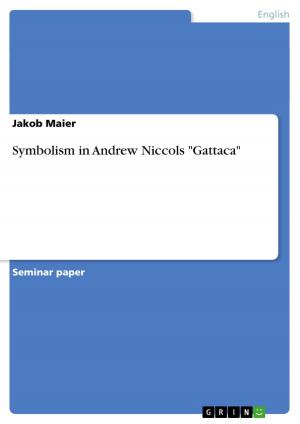Cultural Accumulation in Richard Münch's Theorization of Modernity, Systems of Accumulation, and Action
Nonfiction, Social & Cultural Studies, Social Science| Author: | Pablo Markin | ISBN: | 9783640250813 |
| Publisher: | GRIN Publishing | Publication: | January 21, 2009 |
| Imprint: | GRIN Publishing | Language: | English |
| Author: | Pablo Markin |
| ISBN: | 9783640250813 |
| Publisher: | GRIN Publishing |
| Publication: | January 21, 2009 |
| Imprint: | GRIN Publishing |
| Language: | English |
Doctoral Thesis / Dissertation from the year 2008 in the subject Sociology - Habitation, Urban Sociology, grade: Pass, The University of Alberta, Edmonton, Alberta, Canada, course: Doctoral Final Oral Examination, 695 entries in the bibliography, language: English, abstract: As urban centers concentrate organizational, service, and communication infrastructures, amplifying both the influence of networks and the importance of global flows, the urban policy and theorization emphasis has to shift towards the performative, contingent and material aspects of cities. The theoretical effort of Münch reinforces the explanatory power of both theoretical research and practical problem solving by laying the foundations of a theory of modernity, systems of accumulation, and action. Münch's sociology allows for the analytical and historical description of individual and collective action. Post-traditional connections among anthropology, philosophy, political economy, and history make possible interdisciplinary arenas of inquiry defined more by subject than by discipline guiding the process of clarification of links among multiple sites where researcher can pursue his or her subject matter using the methodology of multi-sited anthropology. Münch's theorization of interpenetration, systems, and action allows for the reconstruction of the relations between economy and culture as analytical ideal types that allow for variation and change. Münch's development of Parsons', Weber's and Durkheim's sociology theorizes modern development in terms that connect systems of economic, cultural, social and political accumulation into a dynamic structure of related contradictions showing historical and geographical variations. In temporally, spatially, and socially specific ways, urban spaces actively contribute to the formation of economies, cultures, societies and polities. Cities serve as sites of strategic centrality, interrelated diversity, and mobile interconnection for individual and collective actors entering into spatially, historically, and relationally specific interrelations. Arising from the strategies of urban development, cultural clusters are variously shaped by the dynamics and contradictions of the interrelations among individual organizations, available strategies, and cultural objectives. Notably aligned with the transformations afoot in global cities, art museums and biennials manifest urban structures of modern social order. Thus, art exhibitions are complex and contingent instances of social, cultural, political, and economic accumulation.
Doctoral Thesis / Dissertation from the year 2008 in the subject Sociology - Habitation, Urban Sociology, grade: Pass, The University of Alberta, Edmonton, Alberta, Canada, course: Doctoral Final Oral Examination, 695 entries in the bibliography, language: English, abstract: As urban centers concentrate organizational, service, and communication infrastructures, amplifying both the influence of networks and the importance of global flows, the urban policy and theorization emphasis has to shift towards the performative, contingent and material aspects of cities. The theoretical effort of Münch reinforces the explanatory power of both theoretical research and practical problem solving by laying the foundations of a theory of modernity, systems of accumulation, and action. Münch's sociology allows for the analytical and historical description of individual and collective action. Post-traditional connections among anthropology, philosophy, political economy, and history make possible interdisciplinary arenas of inquiry defined more by subject than by discipline guiding the process of clarification of links among multiple sites where researcher can pursue his or her subject matter using the methodology of multi-sited anthropology. Münch's theorization of interpenetration, systems, and action allows for the reconstruction of the relations between economy and culture as analytical ideal types that allow for variation and change. Münch's development of Parsons', Weber's and Durkheim's sociology theorizes modern development in terms that connect systems of economic, cultural, social and political accumulation into a dynamic structure of related contradictions showing historical and geographical variations. In temporally, spatially, and socially specific ways, urban spaces actively contribute to the formation of economies, cultures, societies and polities. Cities serve as sites of strategic centrality, interrelated diversity, and mobile interconnection for individual and collective actors entering into spatially, historically, and relationally specific interrelations. Arising from the strategies of urban development, cultural clusters are variously shaped by the dynamics and contradictions of the interrelations among individual organizations, available strategies, and cultural objectives. Notably aligned with the transformations afoot in global cities, art museums and biennials manifest urban structures of modern social order. Thus, art exhibitions are complex and contingent instances of social, cultural, political, and economic accumulation.















